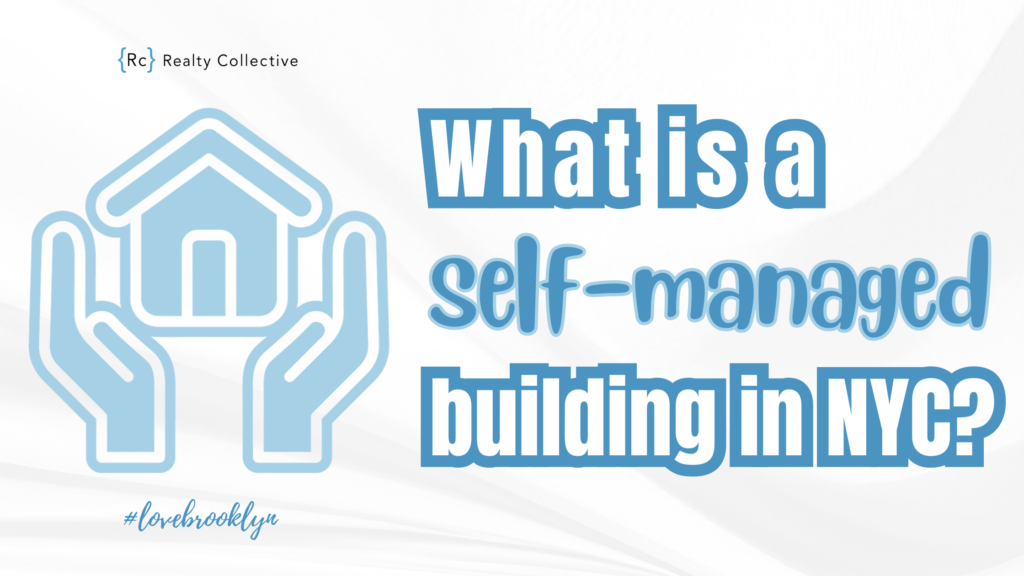What is a self-managed building in NYC?
Nov 12, 2023

A self-managed building is a condo or co-op building which does not pay for the services of a
third party ‘Managing Agent’ to run the day-to-day operations of the building. Self-managed
buildings in NYC are typically very small and have less than 15 units.
If a building is self-managed, it means that the individual apartment owners take responsibility
for running the operations of the condo or co-op building. Such responsibilities include:
collecting monthly maintenance / common charges fees, bookkeeping, routine maintenance,
paying bills and handling capital projects.
Low Monthlies
Apartments in a self-managed building usually have lower than average monthly maintenance
(or in the case of condos, unusually low common charges). This is because the building saves
$1,000-$2,000/month by not having to pay a managing agent.
Pro Tip: While condo apartment owners pay two separate monthly bills (common charges and
real estate taxes), co-op apartment owners make one combined monthly payment called the
‘monthly maintenance payment.’ A portion of the co-op monthly maintenance payment is tax
deductible.
You might be asking, isn’t it worth paying an extra $150/month so that I don’t have to spend
all day managing my apartment building? Surprisingly, the decision for a building to become
‘self-managed’ isn’t always a financial decision. The challenge with smaller buildings in NYC is
that they simply cannot afford to hire one of the more professional and established managing
agents. Many small buildings end up hiring a managing agent only to find that the apartment
owners still have to do most of the work themselves! Why overpay someone for low quality
work?
The main downside of buying into a self-managed building in NYC is the risk that you’ll end
up having to dedicate a disproportionate share of your time to building matters.
Key Man Risk
Another risk of self-managed apartments is key-man risk. What if the board president or
treasurer of 10 years abruptly resigns? Does the building have anyone else with the level of
knowledge required who is ready, willing and able to step in and fill the void? In addition, is
your building capable of navigating through the city’s complex list of ordinances, filing
deadlines and other legal and tax requirements? Missing deadlines and failing to obey city
ordinances can end up costing you and your building major money.
Financials
An additional risk of buying into a self-managed building is the potential for incomplete,
un-audited or fraudulent financials. Just because a building is self-managed doesn’t mean that you should assume their finances are shady, but it’s a good idea to have your real estate
attorney review the finances and the building’s budget.
Pro Tip: Most self-managed buildings won’t have ‘audited’ financials since the building is not
paying for professional management services. All this means is that your attorney should
review whatever financials are available. It is not advisable to blindly assume that ‘unaudited’
financials are sketchy, because this is not always the case. Remember that you are directly
benefiting from the building’s lower cost structure by having lower maintenance (or common
charges) for the apartment you are buying!
Board Vacancies
Your buyer’s agent should also be sure to inquire as to how the day to day management of
the building is allocated amongst apartment owners. In some instances, the building may be
actively looking for a new apartment owner who is interested in becoming the treasurer or
board president right away.
For a self-managed co-op building, it’s important to understand that you will be expected to
contribute to the community by helping the building with its affairs.












